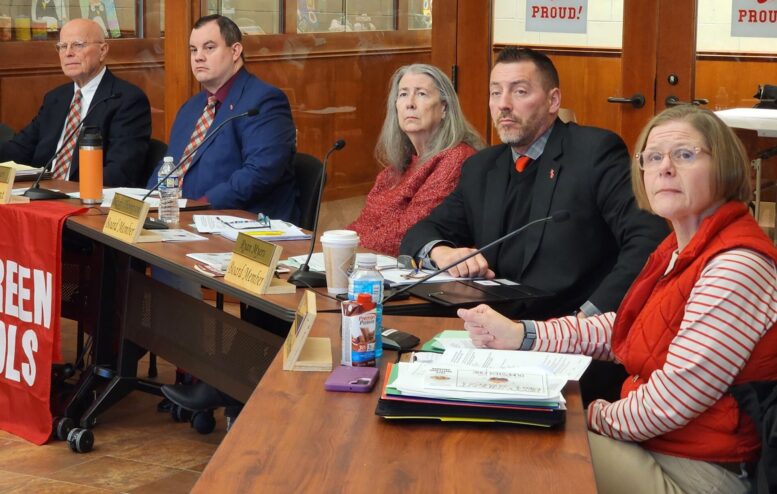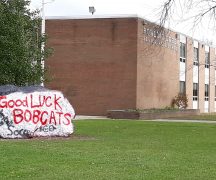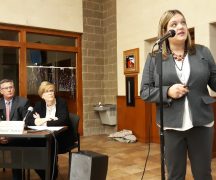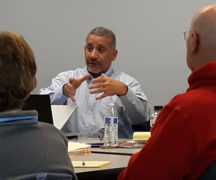By JAN McLAUGHLIN
BG Independent News
The Bowling Green Board of Education made the painful decision Tuesday evening to cut athletics, extra-curriculars, and 29 positions – if the income tax on the May ballot is not passed by voters.
The cuts are not threats, but the reality if the levy fails, Superintendent Ted Haselman said.
“This is real,” he said, vowing transparency. “So everyone knows what’s at stake.”
Following is the list of positions and programs on the chopping block for the next school year (2025-2026), if the levy doesn’t pass, with an estimated savings of $2.6 million:
Staffing/positions eliminations:
- Assistant mechanic
- Athletic director
- Athletic secretary
- Bus drivers (7) (creating additional fuel savings)
- Crossing guards
- Custodians (2)
- District communication director
- Human resources generalist
- Inventory control/courier position
- Nurses (3)
- Performing Arts Center manager
- Student wellness coordinator
Teachers
- District wide music
- Elementary (4)
- High School English
- Middle School business education
- Gifted education
Program eliminations and reductions
- Extra-curricular activities (athletics, the arts – music and drama, clubs, yearbook, National Honor Society, etc.), and all athletic and non-athletic supplemental contracts eliminated
- District Gifted program
- District elementary orchestra program and reduced secondary music course options
- Contracted district mental health therapists and case managers
- No field trips or alternative educational opportunities district wide including fifth grade camp
- All buildings will be shut down at the end of the school day to outside entities to save on utilities and personnel costs (Girl/Boy Scouts, rec athletics, etc.)
Transportation reductions
District transportation will be limited to the following:
- Only transport students in grades PK-8 who reside more than two miles from school (no transportation within a two-mile radius of schools, both public and private/parochial)
- No high school student transportation provided except as required by law (Penta Career Center students: school-to-school only; no home pickup or drop off)
- With the reduced number of bus drivers, the size of each route will be significantly larger resulting in a substantial increase to student travel time on bus to and from school (up to 1.5 hours)
- Due to middle school students being transported with elementary students, the middle school day start and end time will move to 8:20 a.m. to 3:02 p.m.
Below is a list of the reduction percentages by category:
- Elimination of supplemental contracts: 29.3%
- Teaching staff: 22.1%
- Student Health and Wellness 13.7%
- Administrative staff 13.2%
- Reduction in transportation: 12.1%
- Remaining: Support staff, field trips, etc. 9.6%
Haselman also pointed out that as part of an annual review done by the district, some positions were already eliminated during the current school year, with an estimated savings of $421,693.55. Those included:
- Central administration treasurer’s office staff
- Elementary intervention specialist
- High school English teacher
- Para professionals (7)
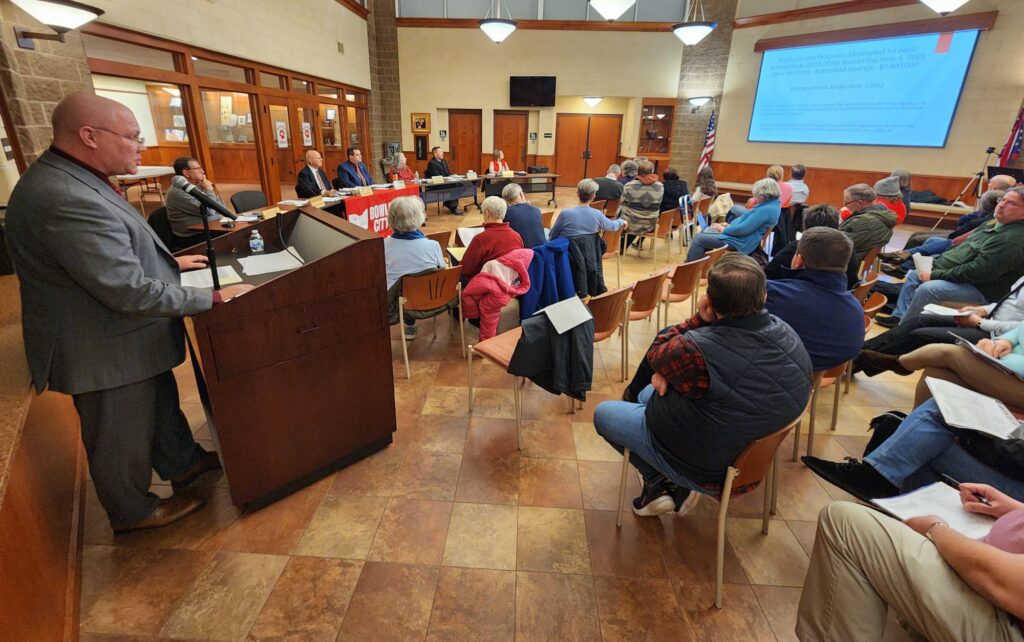
After the district’s operating levy failed in November, school leaders were faced with two options – increase revenue or make drastic budget reductions.
Treasurer Matt Feasel reminded that while voters approved the new high school building in 2023, the district has not received any operating money increase from voters since November 2010.
The money approved by voters for the new high school cannot be used for operating expenses, Haselman said. “We can’t arbitrarily take those dollars. People voted in that money for a new building.”
So in December, BG Board of Education voted to put the income tax levy for operating funds back on the ballot in May. If the levy passes, the proposed cuts will be avoided.
Haselman noted that the levy attempt in November failed by just 108 votes – 49.63% to 50.37%.
“The need for additional funding did not go away with the failure of this operating levy,” he said.
“We cannot have what we cannot pay for,” Haselman said.
The board took steps in December to make the levy more palatable to some voters. For those who believe that no levy should be for a continuing period of time, the board agreed to limit the levy to five years.
For those who wanted the district to use its pipeline tax revenue for operating expenses, rather than for building maintenance costs, the board agreed to shift $1 million of the pipeline money from building maintenance into operating funds.
The board decided to stick with an income tax request, since district property taxes went up when voters approved the building of a new high school.
And for those who have wanted more transparency of district finances, Feasel has been making the district’s monthly check register available for public viewing.
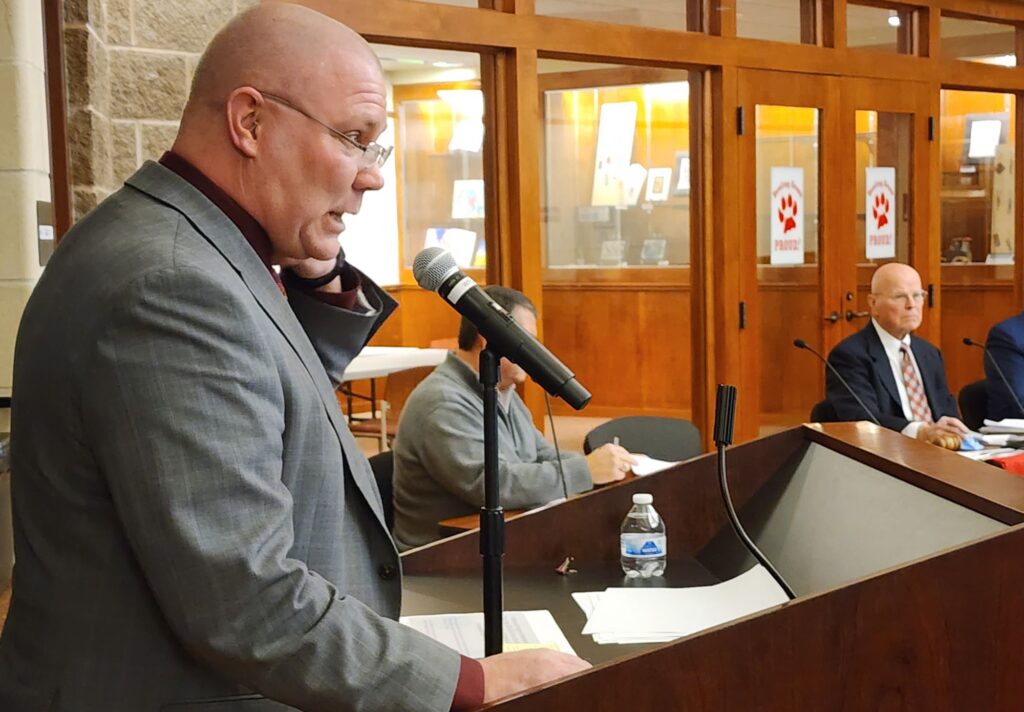
On Tuesday, Haselman presented details of the district’s finances and proposed cuts necessary in the face of rising costs and deficit spending.
“How do you want our school district to look?” he asked.
“We’ve got a lot of people. We provide a lot of services,” the superintendent said. “All of these items are good for kids. But we have to be able to pay for these.”
“This is what $2.6 million looks like,” Haselman said of the cuts listed.
The deliberations on the cuts have been “grueling,” he said. And he has had tough conversations with all of the 29 people holding positions on the chopping block. “It’s heartbreaking.”
And the brutal reality is that if an operating levy isn’t passed, there will need to be more cuts in the future.
“The expenses continue to increase, and our revenue stays the same,” Feasel said, noting that it costs $114,000 a day to operate the school district.
Prior to voting on the proposed cuts, the board members weighed in with their thoughts.
“This is nothing that any of us want to do. This will affect every corner of this school district,” said Tracy Hovest, as she choked back emotion. “Every cut they make has a face behind it. That could be your neighbor. Your neighbor’s kid. It’s my kid.”
Ryan Myers, who also has children in the district, reflected on all the successes in the district during the last few years. Salaries for teachers and classified staff were brought up to a competitive level so the district didn’t keep losing talent. The state report card scores have improved, the bond issue for the new high school was passed, and the new administration is transparent and communicative.
“This hits home for me. I also have skin in the game,” Myers said, noting his children’s involvement in extracurriculars. “This is not a threat. This is the dark reality if this doesn’t pass.”
Myers asked voters to do their homework before casting their ballots – and check their sources.
“Get your facts from the right places,” he said. “There’s a lot of misinformation and non-facts on social media.”
Ardy Gonyer, an alumnus of BGHS, said the decision on the cuts was agonizing.
“Nobody wants to do this,” he said. “It’s deeply personal.”
Norm Geer said the possible cuts come at a time when the district is on an upward trajectory, with a groundbreaking soon for the new high school. The new building was envisioned as the key to making Bowling Green a “destination district.”
“To think that it could all be derailed is a sobering thought,” Geer said.
After the meeting, Peggy Thompson said she would support the income tax issue. She was the lone vote on the board against putting the issue on the May ballot. Seeing the alternative changed her mind.
“I’m going to vote for it,” Thompson said. “I don’t like the options.”
After the board meeting, BGHS sophomore Tess Challu, who is involved in orchestra and Model UN, asked about the fate of music programs. Haselman said the classes will still be offered, but there would be no concerts after the school day.
Challu said students discussing the possible cuts feel helpless that their favorite parts of school may disappear. She asked the board members for their advice to those students. It was recommended that they talk to their parents about the election – and register to vote themselves if they are 18 or older, Gonyer said.
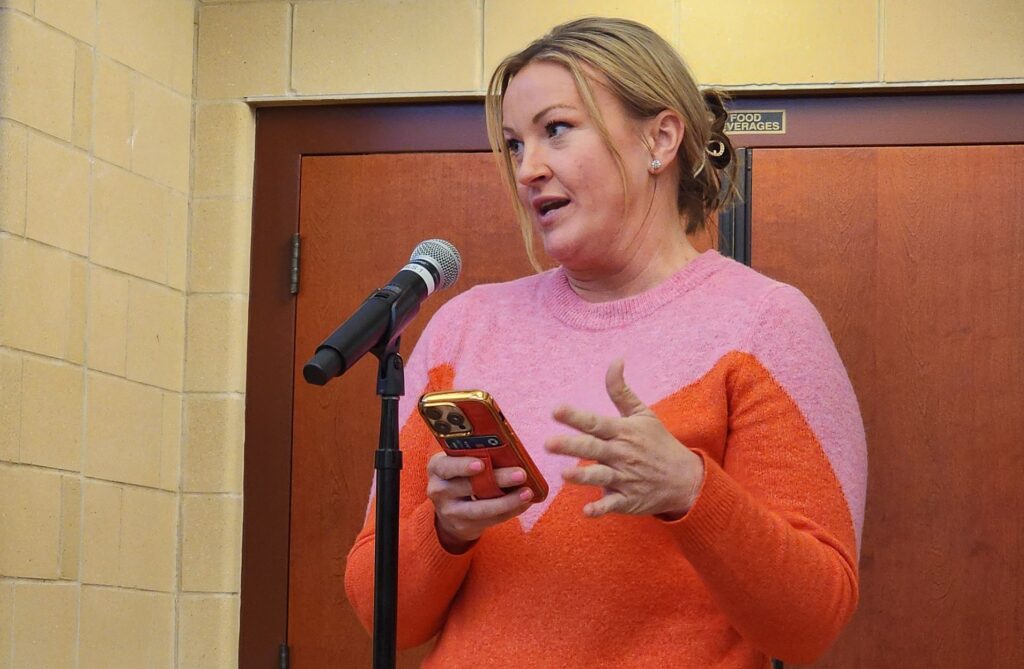
Also during the meeting, Amy Simmons, a district parent, praised the administration for its honesty with the community.
“I appreciate the transparency that this group has offered our community. As a collective, the board is saying what you are going to do and then doing what you said you would do. I appreciate that.”
Simmons cited the division in the community, and said she believes there are threads that can unite.
“I think we can all agree that no one wants to see someone lose their job. No one wants to see a child not have their educational needs met. No one wants to see students without the ability to show their talents on a field or with an instrument,” Simmons said.
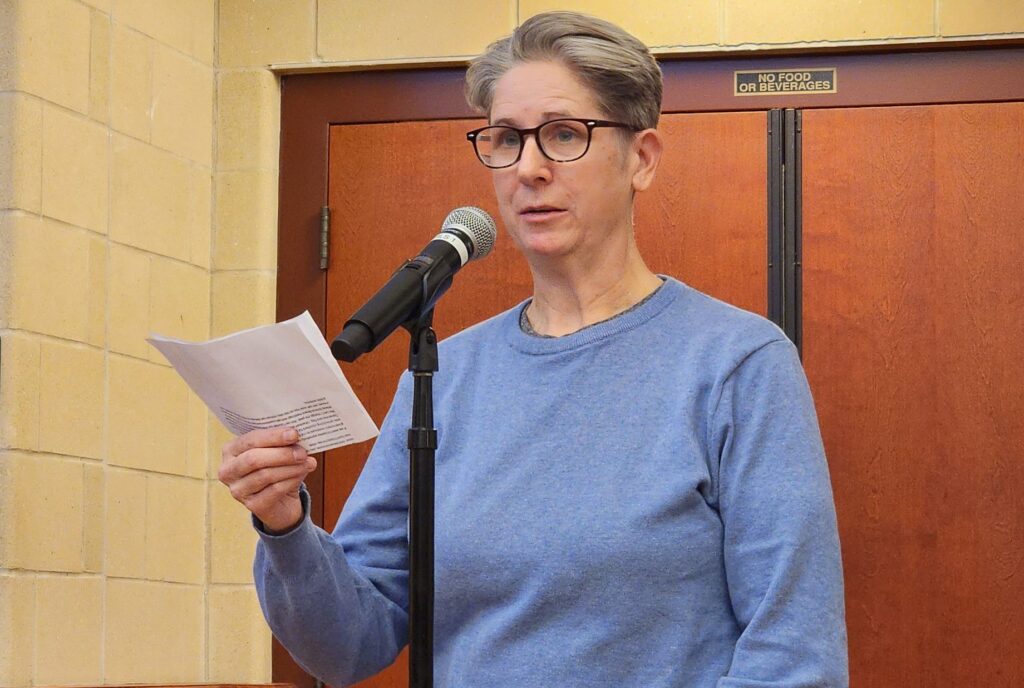
Another parent also defended the levy, and suggested that voters not base their votes on past grievances with the district.
“We can’t punish our kids for those past decisions,” Brenda Fite said.
“Honestly, none of that matters today,” Fite said. She tried to clear up the misconception that the district can use building funds for operating costs. To put it in terms common to rural areas, farm silos can hold corn and soybeans – but they can’t be mixed.
“I’m frustrated we’re at this point,” Fite said, adding that if anyone is to blame, it’s the fault of state legislators who keep asking public schools to do more with less, while giving more tax money to private schools.
Also at Tuesday’s meeting, the board voted unanimously to renew Haselman’s contract for five years, beginning Aug. 1, 2026. His pay will remain unchanged, at $158,100 annually.
The board praised Haselman for his leadership, transparency and ability to mend broken relationships.
“We want to keep you here,” Gonyer said.

